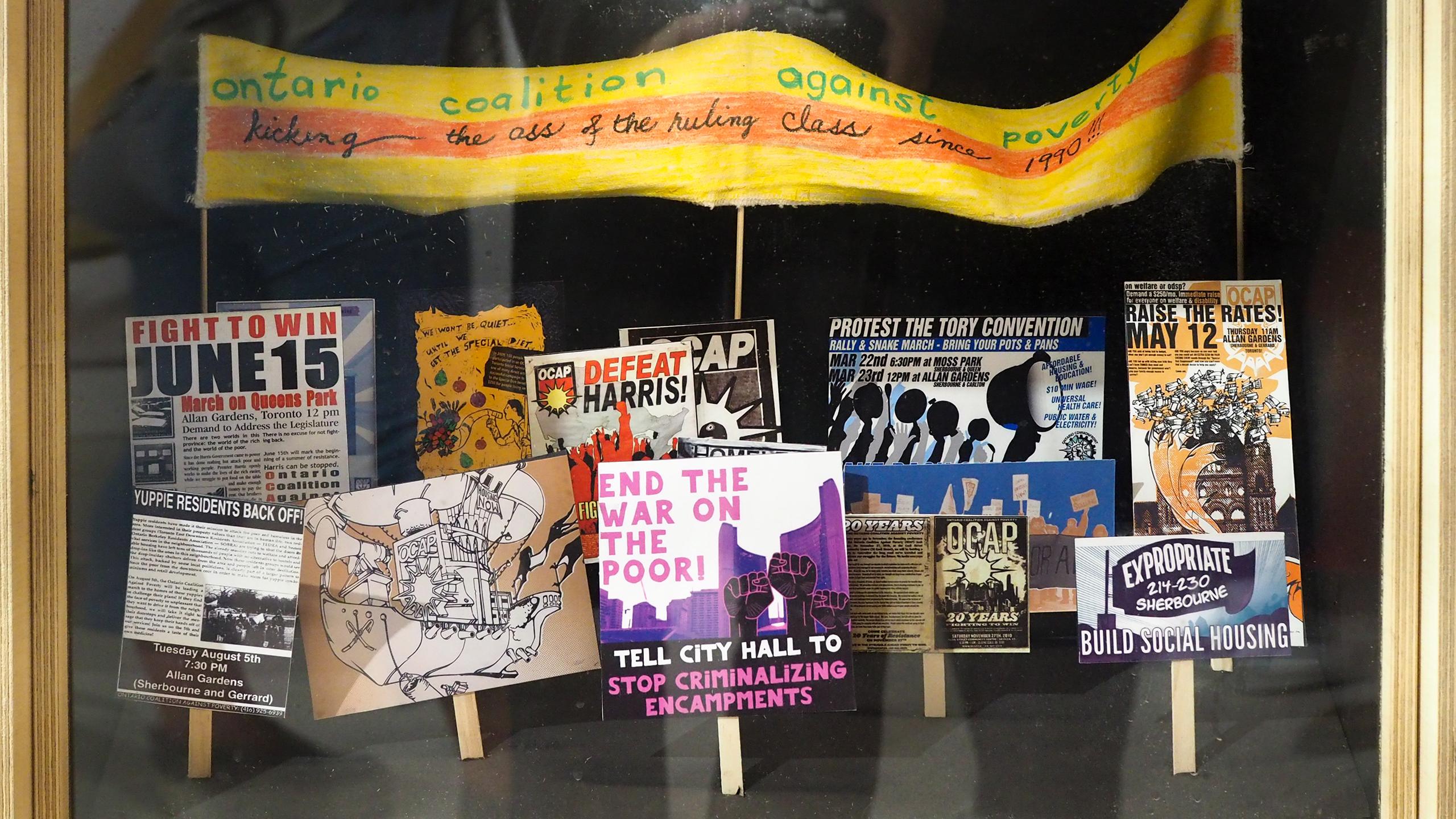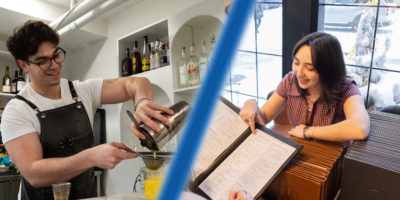By Asha Swann
Sept. 30 marked the end of a 12-year run for Social Justice Week at Toronto Metropolitan University (TMU).
This year, the Week ran from Sept. 26 to 30 and was led by Kikélola Roach, the Unifor National Chair in Social Justice and Democracy at the school. The agenda included events surrounding social activism, racism, solidarity journalism and more.
Since 2011, Social Justice Week has sought to highlight relevant social issues around campus. Roach has been the chair for the last six years, overseeing the direction that each Social Justice Week has taken since 2017.
The theme of this year’s week was “Reclaim, Repair,” according to the university’s website.
Some events included Reclaiming Black History in Toronto, Why Social Justice is Newsworthy and an installation at TMU’s Paul H. Cocker Gallery on Sept. 29.
Roach said while she’s been the chair, planning the week was always collaborative. “It’s been critical for us to consult with all of the people who are part of the planning committee, which includes people from various different departments,” she said.
It wasn’t just TMU faculty members deciding the course of events during Social Justice Week—students across different programs collaborated together to create multiple events on each day of the week.
Nicole Gabriele, a fourth-year architecture student and a member of the first-ever equity, diversity and inclusion (EDI) task force within the architectural science program, said that students will want to continue social justice events in the future because of the week’s success this year.
“I know we’re gonna continue to do this within our department,” Gabriele said, adding that she hopes other departments feel inspired to have their own version of Social Justice Week.
The EDI task force at the architectural science program helped design and plan the People, Power & the Park exhibition, which occurred on the evening of Sept. 29, as part of Social Justice Week. The exhibit had installations showing Allan Gardens as a social justice hub for the past 125 years.
Roach said the exhibition shows that social justice is about connecting people to real-world experiences. “It’s always been about trying to bridge this gap between the people here on the campus and people in the community,” Roach said.
Gabriele, who said this was the first time the EDI task force helped curate a Social Justice Week exhibit, said having a focus on Allan Gardens was a perfect way to teach students that social justice surrounds the TMU community as the week came to a close.
“A lot of people don’t know its rich history of having protests,” she said. Thousands gathered at Allan Gardens in 1965 in protest of Canada’s neo-Nazi groups. Throughout the 70s and 80s, LGBTQ rights groups would organize at the gardens to fight anti-gay legislation in Toronto. In recent years, anti-poverty activists have used Allan Gardens to challenge evictions in the city.
For Michel Dumont, the Indigenous artist in residence at Imagine the Park, a collaboration between Allan Gardens and TMU’s Office of Social Innovation, the main goal when it comes to issues of social justice is awareness. “Visibility is important at all costs,” he said.
Roach said she hopes what people take away from Social Justice Week is that students have the power to take charge. “Change doesn’t just happen automatically,” she said. “It always requires making demands, mobilizing, organizing and pushing for it.”
After two difficult years online during the pandemic and a lack of support from the community, Roach said the planning committee for Social Justice Week wasn’t initially sure they wanted this year’s event to run. After careful consideration, they decided this would be the final one.
“It’s now a time for reflection,” she said. “It’s a time for us to think about whether it’s reasonable for us to have to always beg for support; beg for space, time, energy, resources and so on from the university.”
The Eyeopener reached out to the university for comment on this year’s Social Justice Week being the final one and the school’s role in the decision for it to come to an end. Despite reaching out multiple times for comment from the school, The Eye was forwarded back to Roach for more information on Oct. 4. After a final attempt at getting comment on Oct. 7, The Eye was once again told on Oct. 14 that there was not yet any comment.
Roach explained that she doesn’t want the initial goal of social justice week to be lost. She remains hopeful that students in future years will continue advocating for change throughout the university.
“Although Social Justice Week might go away, it doesn’t mean that the dialogue stops,” she said. “It just might look different, depending on who shows up and what they do.”
Roach described feeling that this was “a full circle moment” as the week ended and students came up to her, wanting to “continue these conversations.”
“This is what Social Justice Week is all about,” Roach said. “It’s trying to train our lens on moving beyond the kind of static sort of language that we hear often about equity, diversity, inclusion, to actually hearing the voices of the people who are so often left out of the narrative.”
Correction: In a previous version of this story, a source’s name was misspelled. The Eye regrets this error.












Leave a Reply